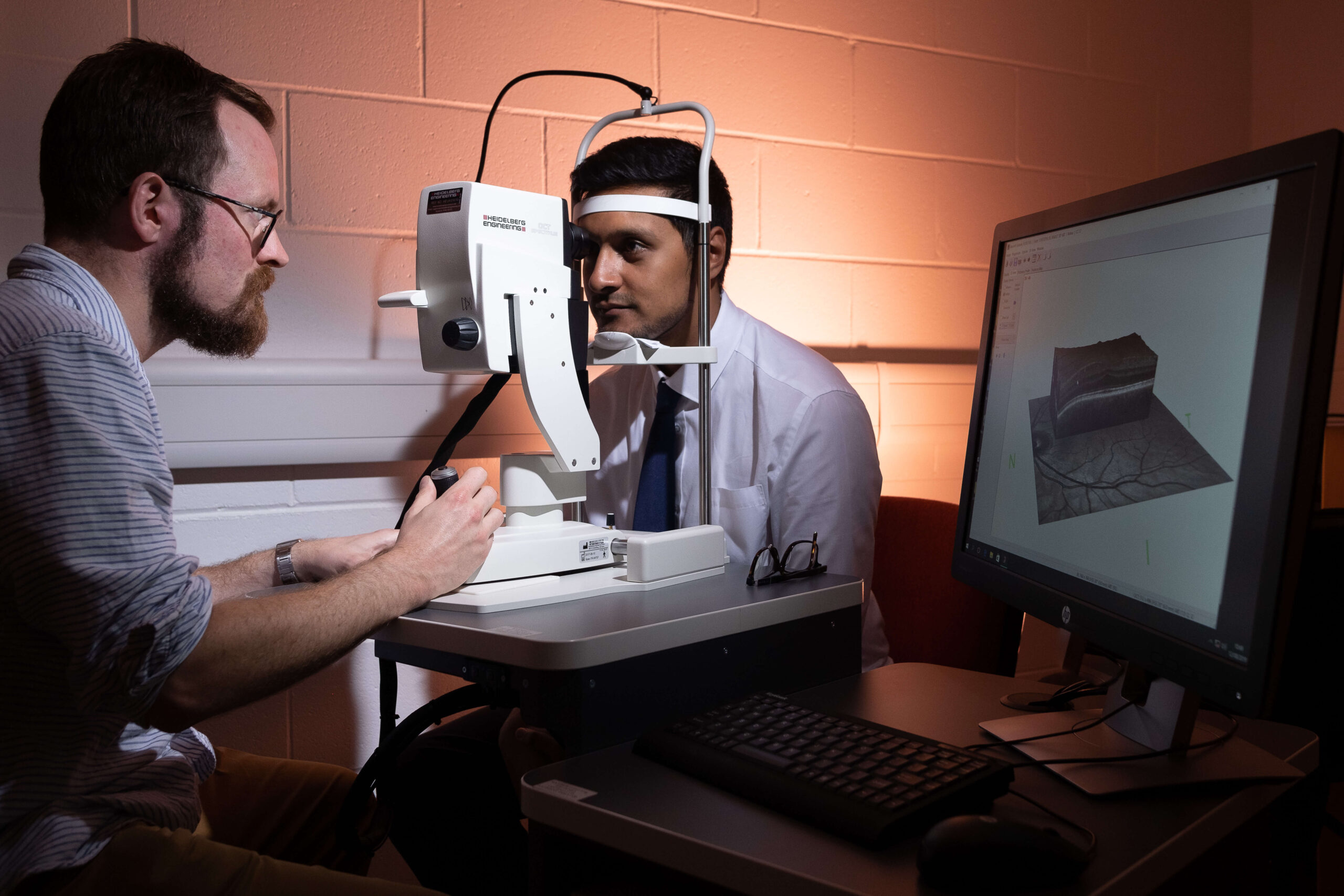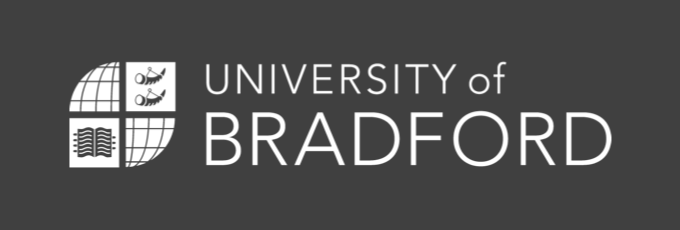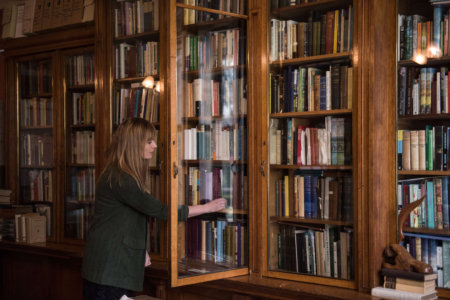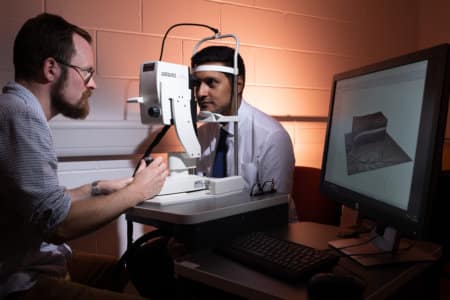Habeeb Rahman’s journey into optometry began with a profound personal connection to eye health. “My interest in Optometry began with personal experiences in my family, where various eye conditions, such as nystagmus and coloboma, were prevalent,” says Rahman, who is originally from Bangladesh.
Seeing how his loved ones suffered lower quality of life as a result of their eye conditions, Rahman sought a career that would let him help patients and their families take the first step toward healthier eyes and healthier bodies. At the University of Bradford, Rahman found exactly what he sought and more.
What drew him to the School of Optometry and Vision Science was its excellent reputation and history of over 90 years. Facilities on campus include an integrated eye clinic and Directed Learning Suites. These are dedicated, well-equipped, and large practice facilities for Optometry students like Rahman to practise clinical skills outside of teaching labs/clinics.
From week one, Rahman has had plenty of hands-on learning opportunities. This includes practical experience using instruments like the Slit-lamp for eye health observations, the retinoscope for prescription estimation, and the direct ophthalmoscope for retinal assessment. “As part of my programme, I had the opportunity to shadow a practitioner at his award-winning practice, and his achievements in contact lens practice have significantly influenced my career aspirations.”
On campus, his favourite modules have been Binocular Vision, Contact Lens Practice and Ocular Pharmacology. “They challenge me and align with my future goal of completing the Independent Prescribing (IP) qualification,” Rahman says.

At the School of Optometry, Habeeb Rahman gained valuable skills that are highly valued by employers through hands-on practical experience. Source: Habeeb Rahman
Professors and staff here are high-profile qualified optometrists. They bring with them years of experience in optometric practice, teaching and research. For decades, researchers here have been investigating vision and the visual system to address important research questions. They’re funded by a variety of international bodies and their findings are channelled to international clinical practice and cutting-edge evidence based teaching.
Being part of this community has inspired Rahman to advance his knowledge in this field further. “After graduating from the Optometry programme, I plan to pursue further education in Glaucoma, Medical Retina, and IP certification,” he says. Bradford offers higher qualifications (professional certificates and professional higher certificates) in these specialised fields as well.
Spanning four years, the Master of Optometry prepares students to register as fully qualified optometrists with the General Optical Council (GOC). Right from the start, students benefit from a strong focus on clinical training. They hone essential practical competencies alongside scientific theory during the first two years.
During the third year, they gain hands-on experience in the university’s eye clinic and hospitals under expert supervision. In the fourth year, students engage in a 44-week extended clinical placement in collaboration with the College of Optometrists. In the final year, students apply their learning in real-world settings through paid employment outside the university. The College of Optometrists and the university’s dedicated Career and Employability service actively assist students in securing these placements.
The best of multiculturalism in UK’s city of culture
Located in the heart of West Yorkshire, the University of Bradford offers international students two unique advantages: being part of the next UK City of Culture in 2025 and the youngest city in Europe. Vibrant, diverse and extraordinary, this is a location that provides Optometry students with a rich and diverse programme of culture and thought-provoking ideas. Bradford is also a city of research, meaning students can access education grounded in the latest evidence and cutting-edge knowledge due to the diverse local population. Optometry students have access to a wide range of different patients and eye problems to improve their clinical experience.
As a Student Ambassador, Rahman got to engage with a diverse student community at Bradford. “In my role as an AOP representative, my core responsibility is to raise awareness of the AOP and advocate for student optometrists, giving them a crucial voice to initiate changes and improvements from a student perspective,” he says. “Bradford’s cultural diversity has significantly enhanced my university experience by promoting inclusivity, broadening my perspective, and offering exciting cultural opportunities.”
Just a short bus or train ride away from the bustling urbaneness of Bradford is the picturesque Pennine Hills and Bronte country — giving international students the best of many worlds. Whether through university-organised trips or on their own, a visit here is the perfect way to unwind and immerse themselves in the stunning landscapes.
“A diverse range of restaurants and eateries stand out, with award-winning options. Besides, the Alhambra Theatre, City Park, and Lister Park are noteworthy attractions for entertainment and relaxation,” Rahman says.
Click here to learn more about the School of Optometry.
Follow the University of Bradford on Facebook, X, Instagram, LinkedIn and YouTube.













